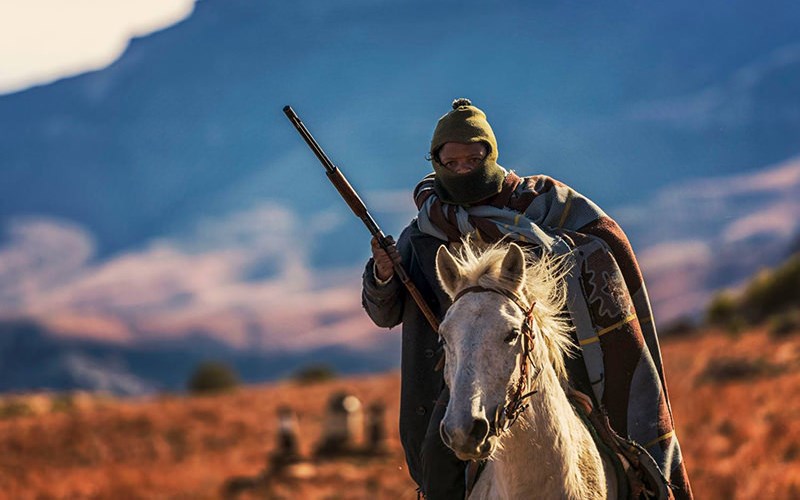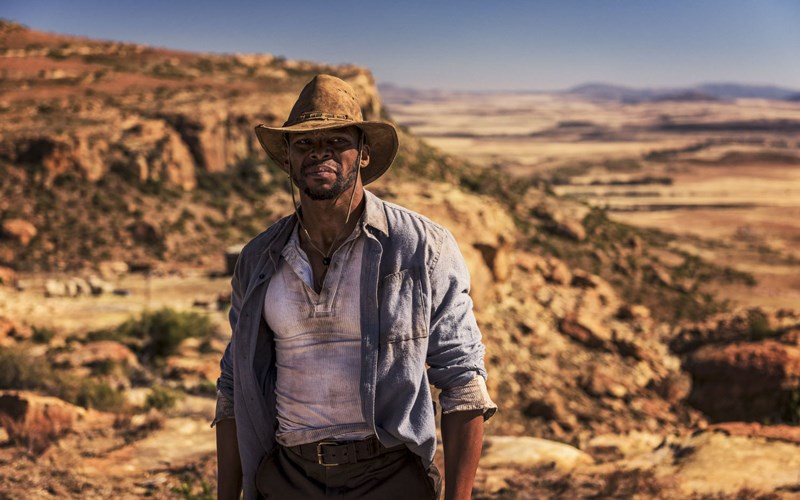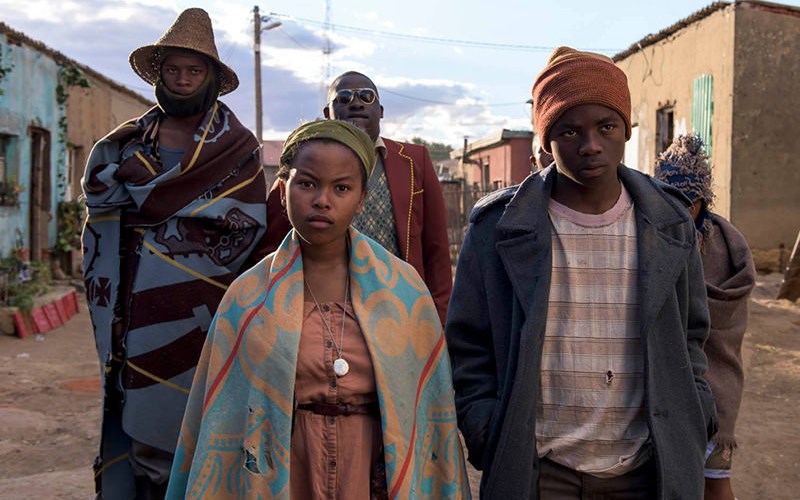
Top stories






LifestyleWhen to stop Googling and call the vet: Expert advice on pet allergies from dotsure.co.za
dotsure.co.za 16 Feb 2026
More news


Marketing & Media
Ads are coming to AI. Does that really have to be such a bad thing?














With a history in stage and performance, Drummond 's visual sensitivity to pace, tone and character serve him as a complex screenwriter for his own Be Phat Motel Film Company and for the South African, and international markets; as a creative and conceptual producer and as an intuitive documentary director. His feature documentaries, Lost Prophets and Outsider and shorts, Sweetheart and Wide Open have screened extensively at festivals around the world. Projects in development include television drama series, co-production Acts of Man and a high-octane feature adaptation of Charlie Human’s beautifully twisted novel Apocalypse Now Now, which won a Golden Horn award for Best Short Film at the 2018 SAFTAs.
Drummond is the founding manager of the Cape Town chapter of the shnit Worldwide Shortfilmfestival, and hosts science, tech and sci-spec podcast Space Life and Other Dumb ideas.
Travelling through the Eastern Cape and Free State of South Africa in late 2009, and particularly the Maloti Mountain range on the southern border of Lesotho, Drummond and Matthews were struck by two things: the resemblance of the area – majestic landscapes, sweeping plains and rocky outcrops – to the world of the classic western films, and also by the communities surrounding it.

Dotted across this landscape are tiny towns, many with European names – Rome, Barcelona, Hamburg, Berlin, Marseilles – in a throwback to their colonial settler roots. Connected by train lines, some comprise nothing but a station, a trading post, a hotel and a post office. For the larger ones, most not more than a few city blocks in size, the hub of town was traditionally a white space, with the local indigenous peoples of the area relegated to townships, workers quarters and tin shack shantytowns, often with poor or no water supply, ablutions, power or basic services.
The death of these settler towns began long before the fall of Apartheid, with the train lines becoming obsolete, replaced with highways and a bigger focus on city living. After the advent of the new South Africa, many of those towns completely faded away, and in their place the townships began to rise up. The result is something much more proudly South African, and Matthews and Drummond made a commitment to travel the country, visiting these towns for inspiration. They found it akin to a new frontier, and in that was the parallel with the western.
Five Fingers for Marseilles deals with the struggles and triumphs (over nature, crime and human nature) that affect communities on this new frontier, and the rich characters found in them. It contains many of the archetypes of the classic western – larger than life heroes and villains, an examination of the ideas of ‘good’ vs ‘evil’, conflicting human tendencies towards brotherhood and brutality and the themes of land and ownership, claim and legacy, and the urge to protect our roots – from even ourselves.

Drummond has been a fan of the western for as long as he can remember, less so the action-packed crowd-pleasers and more the brooding introspection of films like Unforgiven, Once Upon a Time in the West and TV series like Deadwood – stories that simmer just below the surface, that explore the universal themes of man versus man, man versus himself and men versus the land. All stories are conflict, as the mantra goes, and in the western one finds almost the purest form.
I’ve long loved the idea of bringing the western into a South African space, but not in a way that risked ‘gimmick’ or stuck to the routine or the expected,” says Drummond. “In the world of Five Fingers for Marseilles, I found a story I was burning to tell, a chance to explore a part of the country little seen, to capture a vivid way of life, explore little known histories and a chance to write complex, compelling characters, with depth and weight, for the best actors in the country. A film that would create heroes, anti-heroes and villains that might even become iconic.
It was a chance to look at land and ownership and history; a world to explore culturally, socially and politically, through the lens of genre.
It was important to Drummond, Matthews and the creative team from the start that they approach the world humbly and openly, without projecting a viewpoint onto it, being especially cautious of appropriation or exploitation. “We knew that by setting it in a small rural town, it lends itself to the Western, but more importantly it separates it from being seen as just an SA ‘crime story’. Seeing any kind of crime in South African cities brings up a pre-existing subjectivity that audiences can’t help but attach to the film. So by setting the film in a small rural town, it helps create more of a blank canvas for the story and characters,” says Matthews.

The filmmaking team set out to ask questions about South Africa’s past, present and future, not making a defining statement about the culture or the country, but an offering of a gripping narrative that has larger themes and questions worked into it. It’s not an apartheid narrative, but present day South Africa is informed by its past, and the undeniable scars it left on the country are still felt today. It’s also a film that goes deep into human nature, complex as it is.
Drummond and Matthews set out to bring these themes into this South African landscape, touching on local culture and history, crafting a rich, emotional and thrilling story driven by compelling, complex characters unseen on local screens.
The result is a story local in its details but universal in its appeal.
Five Fingers for Marseilles opens at cinemas nationwide tomorrow. To book tickets go to www.bookamovie.co.za
Read more about the latest film releases: www.writingstudio.co.za
